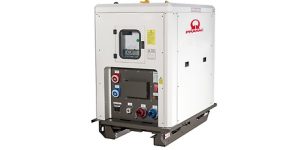The quest for efficient, reliable, and sustainable energy solutions has never been more critical as the world tilts towards renewable energy sources. Amidst this backdrop, battery energy storage systems (BESS) emerge as a linchpin in transitioning to a greener future. For individuals and businesses alike, grappling with the intermittent nature of renewable energy sources and the complexities of modern energy needs, the OFF GRID MX 30/75 LI stands as a beacon of innovation and reliability. Let’s delve into the essence of BESS and unveil how this cutting-edge technology is reshaping the energy landscape.
At its core, a battery energy storage system is a sophisticated technology that stores electrical energy as chemical energy, only to convert it back to electrical energy when needed. This seemingly simple process is the foundation of modern energy management, enabling the efficient use of renewable energy sources like solar and wind power. The OFF GRID MX 30/75 LI, with its deep cycle automotive NMC Li-Ion battery and advanced Energy Management System (EMS), epitomises the pinnacle of BESS, providing a robust, flexible solution to energy storage challenges.

BESS ensures grid stability and bridges the gap between energy supply and demand, especially during peak demand periods. Integrating renewable energy sources into the power grid allows BESS, like the OFF GRID MX 30/75 LI, to facilitate a seamless, reliable energy supply. This system is particularly adept at managing energy from diverse sources—the grid, diesel generators, solar PV, or wind turbines—ensuring the most efficient and environmentally friendly outcome.
Investing in a BESS directly reduces energy and operational costs, thanks to peak shaving and load-shifting capabilities. The environmental impact is equally profound, with significant reductions in carbon emissions and a reduced reliance on fossil fuels. Moreover, systems like the OFF GRID MX 30/75 LI enhance power supply reliability, providing essential backup power during outages and ensuring your operations never skip a beat.
The heart of BESS technology lies in its batteries, with lithium-ion batteries and lithium-iron-phosphate leading the charge in energy storage capacity and efficiency. The OFF GRID MX 30/75 LI is a testament to the advancements in battery technology, offering unparalleled energy storage solutions that cater to both small-scale and large-scale applications.
BESS is revolutionising how we store and use energy from residential to commercial and industrial applications. The OFF GRID MX 30/75 LI is particularly suited for a wide range of applications, providing reliable power in the most cost-effective and environmentally sensitive manner. Whether renewable energy generation, emergency backup, or energy arbitrage, this system offers financial benefits and security unmatched by traditional energy sources.
The horizon looks bright for BESS, with emerging trends in battery technologies and solutions set to enhance their impact on electric vehicles and other green technologies further. The OFF GRID MX 30/75 LI is at the forefront of this revolution, promising a sustainable, low-carbon energy future.
The role of battery energy storage systems in our modern energy ecosystem cannot be overstated. With the OFF GRID MX 30/75 LI leading the charge, the future of renewable energy expansion and grid stability looks promising. This technology is not just a cornerstone of sustainable energy; it’s a testament to the innovation and investment required to sustainably meet our global energy needs. Embrace the future of renewable energy and explore the potential of battery storage systems. Support policies and initiatives that promote using BESS and renewable energy sources. Dive deeper into how the OFF GRID MX 30/75 LI can revolutionise your energy needs, and contact Lighting & Power for more information.
A Battery Energy Storage System (BESS) is an innovative technology that stores energy using batteries, such as lithium-ion or lithium-iron phosphate. It allows for storing electrical energy from renewable sources like solar panels and wind power, converting it into chemical energy for later use. This system is crucial in maintaining grid stability, providing backup power, and supporting renewable energy integration.
BESS solutions are pivotal in harnessing renewable energy sources efficiently. By storing the excess power generated from solar power and wind power systems during peak production times, these systems ensure a steady energy supply even when the sun isn’t shining, or the wind isn’t blowing, addressing the intermittent nature of renewable energy sources.
While BESS provides numerous environmental benefits and operational cost savings, challenges include
Advancements in battery technology and energy storage systems continue to address these issues, improving the viability and sustainability of BESS solutions.
Yes, battery storage systems can operate independently of solar panels. While commonly paired with renewable energy sources for enhanced efficiency, BESS can also store energy from the grid, providing backup power during outages and contributing to energy arbitrage and peak shaving, thus reducing energy costs and demand on the power grid.
The lifespan of a BESS depends on its design, usage, and the battery technology employed. Lithium-ion batteries, known for their high energy density and efficiency, typically offer a lifespan of 10 to 15 years. Regular maintenance and proper management can extend the system’s operational life.
Storing lithium batteries long-term requires maintaining them at a 40-50% charge state and in a relaxed, dry environment to preserve their energy capacity and prolong their lifespan. Avoiding extreme temperatures and physical damage is crucial for safety and longevity.
The charging time for a BESS varies based on the system’s capacity, the power source’s output, and the specific battery technologies used. Systems designed with high-capacity lithium-ion batteries can often recharge faster, supporting rapid energy storage and availability for peak demand periods.
While BESS technologies offer significant benefits, they also pose risks, such as thermal runaway in lithium-ion batteries if not correctly managed. Ensuring advanced battery management systems, adhering to safety standards, and employing robust designs are essential to mitigate these risks.
Apart from the initial investment and maintenance costs, other drawbacks include the environmental impact of manufacturing and disposing of batteries and the need for continuous technological advancements to improve energy storage capacity, efficiency, and safety.